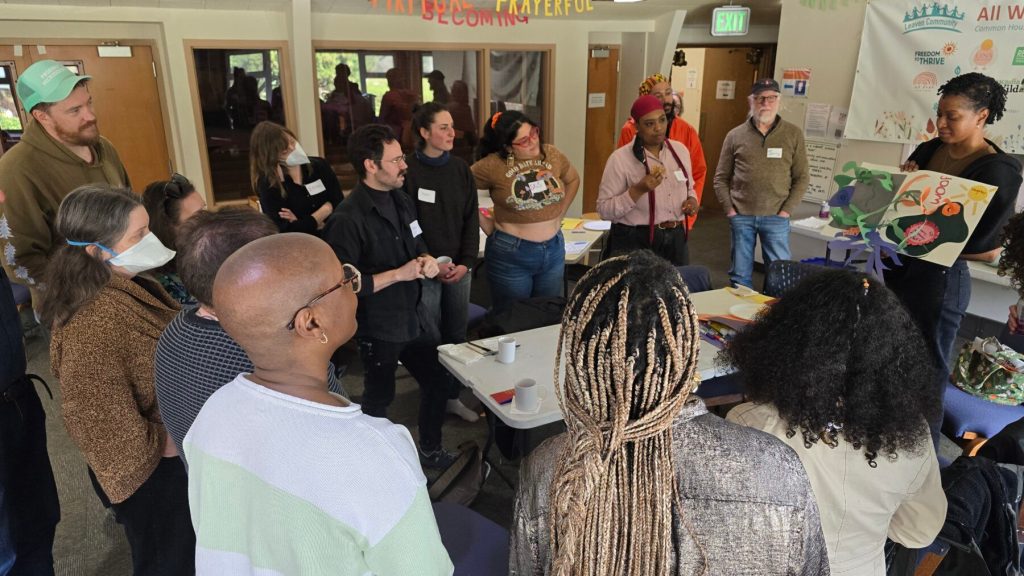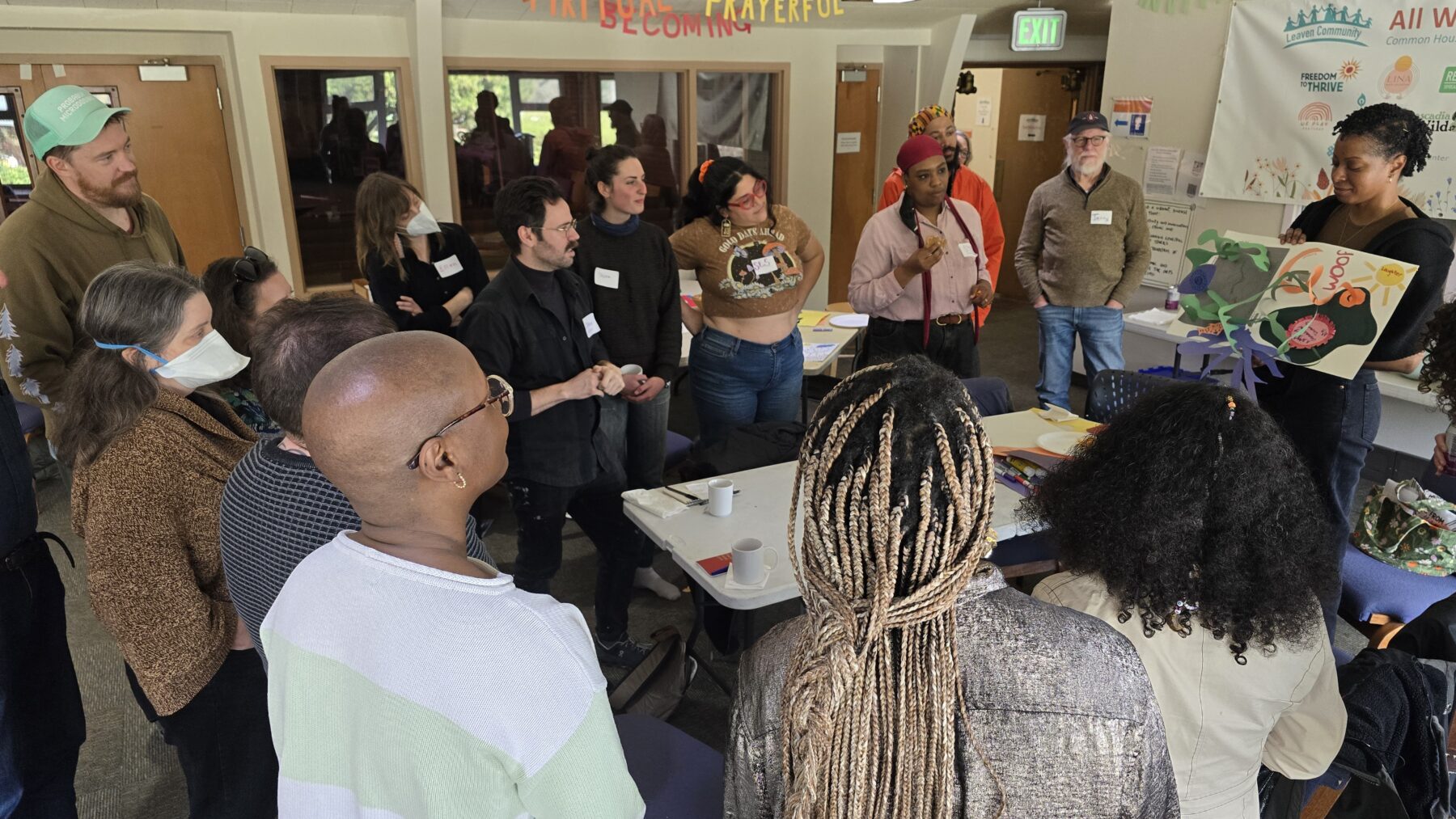 Participants at a 2025 So Much Together workshop sponsored by Oregon Humanities. Such gatherings are imperiled by the Trump adminstration’s slashing of funding, a move that Oregon Humanities and other state humanities agencies are challenging in court. Photo: Rozzell Medina
Participants at a 2025 So Much Together workshop sponsored by Oregon Humanities. Such gatherings are imperiled by the Trump adminstration’s slashing of funding, a move that Oregon Humanities and other state humanities agencies are challenging in court. Photo: Rozzell Medina
The Trump Administration’s war on the arts and humanities will take center stage in a Portland federal courtroom on Monday, Aug. 4.
That is when Oregon U.S. District Court Judge Michael Simon will hold the first hearing on a lawsuit filed by Oregon Humanities to reverse the administration’s decision to abruptly cut federal grant funding to 56 state and jurisdictional humanities councils across the country, including its own.
The court case comes as the Corporation for Public Broadcasting, also targeted by the Trump Administration and a heavily Republican Congress, announced Friday that it will shut down next year; see ArtsWatch’s story here. CPB’s decision follows last month’s Congressional clawback of its funding. Founded in 1967, CPB has funded for more than half a century the Public Broadcasting System and National Public Radio, which in turn help fund regional broadcasters such as Oregon Public Broadcasting and radio stations including Portland’s All Classical Radio and KBOO-FM. What the effect will be on local affiliates is not known yet.
The Oregon Humanities lawsuit is part of that larger picture. Spearheaded by the Department of Government Efficiency (DOGE), the National Endowment for the Humanities (NEH) notified all of the councils on April 2 that it was terminating their grants that had already been approved by Congress. Oregon Humanities filed a federal lawsuit on May 15 alleging the action was illegal, and was joined by the Federation of State Humanities Councils, which represents all but two of the 56 councils.
Although the suit charges the administration cannot legally cancel grants already approved by Congress, Oregon Humanities Communications Director Ben Waterhouse believes the decision was also political.
“The cuts seem ideologically driven,” Waterhouse said. “All federal grants were cut to all councils at once. I believe it reflects a disdain for government support of the things we believe are very important. Not specifically anything we are actually doing.”
The suit asks the Court to restore what the filers declare are unlawfully terminated grants, and to take steps to assure that congressional appropriations flow to humanities councils so they can fulfill their mandate to serve local communities. Congress established the NEH in 1965, declaring that “[t]he arts and the humanities belong to all the people of the United States.” Since then, NEH has funded humanities programs throughout the country consistent with its mission, and with historically bipartisan support from Congress and administrations of both political parties.
In 1972, Congress amended the NEH statutes to provide for the creation of a grants-in-aid program in each of the states and territories of the United States, leading to the creation of humanities councils. Oregon Humanities was created in 1971 as the Oregon Council for the Humanities. It is one of five statewide partners of the Oregon Cultural Trust. According to its press release announcing the lawsuit, “Oregon Humanities connects people and communities through conversation, storytelling and participatory programs to inspire understanding and collaborative change.”
The U.S. Department of Justice has responded that Judge Simon does not have jurisdiction over the matter. It characterizes the disagreement as a contract dispute that must be resolved by the Court of Federal Claims. The department also argues that the Federation of State Humanities Councils does not have standing because it does not receive any NEH funding.
The lawsuit says the NEH originally terminated a $2.58 million grant intended to be spent between 2022 and 2027. Although NEH subsequently rescinded the termination, it has not resumed the funding, Waterhouse said.
“We’re in better shape that most other councils. The NEH funds were only about 44% of our total budget. We’ve been forced to lay off some staff and cancel some programs, but we are still around,” he said. “Our magazine will come out in August and we are planning activities through 2026.”
***
See Claire Willett’s earlier ArtsWatch story about the lawsuit here, and find more information about Oregon Humanities at oregonhumanities.org.

